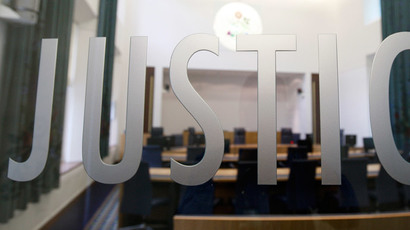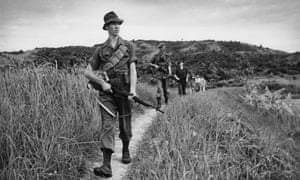Penang government's plan for migrant worker housing is most disappointing. Repeat what the British did to the Indian Plantation workers - isolate them from the rest of the Malaysian community by keeping them in the estates with their own 'sundry shops', sports facilities, etc...
Look like this Jagdeep Singh Deo is too impressed with Singapore - and soon maybe Penang will also pass laws NO MORE allowing migrants workers and foreigners from renting houses and flats in the areas where 'Malaysians' are living. Why? So that 'social problems related to foreign workers can be solved
too' - what social problems are that? Prejudice? Let's not forget that we are a multi-ethnic and multi-religious caring nation, and we respect people.
“We expect construction to start next year and once the dorms are done, we hope social problems related to foreign workers can be solved too,” state Housing, Town and Country Planning Committee chairman Jagdeep Singh Deo announced yesterday.
Workers housing or dorms for all workers - local and foreign > Well, that is not a problem as there are also many Malaysian workers who are there in Penang for work, and cheap bachelor accommodation would be something that people will welcome. But dorms just for migrants is shocking? Workers should also have the CHOICE as to where they stay - let us not start denying workers the choice of their 'home' as it is there is already almost no choice when it comes to work.
Jagdeep's plan seem to be that migrant workers should go to work ...and then to the dorms to stay.. then back to work. Will the Penang Government also be providing the 'prison' busses...and will they all be 'locked in' their dorms, not able to leave until time for work?
“The workers will be able to get everything and they don’t need to go out after returning from work,”
As it is, migrant workers are treated like 'bonded labour' - what with many employer/agents holding on to migrant worker's passports and work passes(PLKS) - so much so that to go out means risk being arrested and detained..
At present, some employer/agents already police these places which houses migrants - making it difficult (almost impossible) for migrant workers to even move out and interact with other workers ...
Why all these? They do not want migrant workers to know about their rights, organize themselves to defend their rights and/or to fight for better rights. They do not want migrant workers to associate with local workers, and form/join trade unions. They do not want migrant workers to go lodge complaints in the Labour departments/s, with the Human Rights Commission, police...They do not want migrant workers to get get to the Bar Council Legal Aid Centres - dangerous for these 'lawyers' will teach migrant worker their rights and how to fight exploitation...
Well, is the Penang government unconsciously maybe just assisting employers/agent's efforts to isolate migrant workers so that they can be more easily exploited...
What we need is for the Penang government to ensure that employer provided worker accommodation that is fit for human living > i.e it satisfies the minimum standards. The government also can ensure that these workers are treated right with all the freedom of movement and association..
Workers need housing units with certain amount of privacy, own cooking area, bath facilities, etc - they are here usually for 3- 5 years. Dorms maybe OK for flood victims or even students... but certainly not for adults workers.
It really sounds like a Detention Centre - what with 'cooking areas' - this sounds like all the workers may have to go to some common 'cooking area' to do their cooking. This is no proper 'home away from home', which every migrant worker deserves.
“Each of these buildings will have sundry shops, cooking areas, medical and sports facilities.
And why is there dorms going to be built in 'industrial and commercial' areas - Development plans for residential areas have different priorities/consideration from commercial/industrial areas. Then, it looks like Penang is planning to have this many 'migrant' workers for a very long time...???
He said these dorms would be zoned as commercial or industrial areas so that developers could not package them as residential pro-perties.
Property owner now are able to earn monies by renting out their premises to migrants directly (or sometimes through agents/employers) - Is there a problem with worker housing in Penang? Because if such a big worker housing scheme is put in place, it will affect income of house owners. The trend now is to buy rather than to rent...Will they be able to find new tenants among locals?
Is Penang planning to treat all migrant workers the same - including the ASEAN migrants?
Human Beings we all are - and this policy/plan of Penang stinks of 'discrimination' and segregation of people on the basis of their citizenship status...or is it just a class thing - let us isolate them 'slaves'/bonded labour/'lower class people...? Either way - not good and certainly not Malaysian.
Let us BUST UNIONS - such accomodation will further prevent union formation and strengthening... Unions cannot organize workers at the workplace - they can only do this after work > and such plans that Penang has would probably make it even more difficult for union organizing..
And we all hoped that the Penang Opposition government will be better ...more just and humane? Hopefully this mistake will be speedily remedied...
Monday November 2, 2015 MYT 9:50:29 AM
All clear for foreign worker dorms
GEORGE TOWN: Dormitories to house thousands of foreign workers will soon be part of Penang’s real estate features.
The state government has approved guidelines for such dormitories and four operators have stepped forward to build them.
“Two of the operators have submitted plans for foreign worker dorms near Batu Maung and Bukit Minyak.
“We expect construction to start next year and once the dorms are done, we hope social problems related to foreign workers can be solved too,” state Housing, Town and Country Planning Committee chairman Jagdeep Singh Deo announced yesterday.
Foreign workers make up an estimated 20% to 25% of the state’s workforce, though accurate figures are hard to come by.
Companies rent residential units to house them, while undocumented foreign workers also find accommodation in Penang’s cheaper residential areas.
There are about 40 such dorms in Singapore, housing more than 200,000 foreign workers. Except for Malaysians, foreign workers in Singapore are not allowed to rent flats or rooms since May 1.
Companies pay dorm operators between S$200 and S$300 (RM608–RM912) to house each foreign worker.
The republic’s “mega-dorms” span over 20 acres and come with cinemas, food courts, beer gardens and even cricket fields.
Jagdeep Singh said he had made a trip to Singapore to see the dorms.
He said the guidelines allowed an 800sq ft-unit to accommodate up to 18 people.
“On 0.81ha (two acres), 5,000 workers can be housed.”
He said these dorms would be zoned as commercial or industrial areas so that developers could not package them as residential pro-perties.
“Each of these buildings will have sundry shops, cooking areas, medical and sports facilities.
“The workers will be able to get everything and they don’t need to go out after returning from work,” he said after opening the International Meatless Day Charity Carnival 2015 at Methodist Boys’ School in Jalan Air Itam.
Last November, Singapore public-listed corporation Centurion Corporation Limited announced that it had won an open tender from Penang Development Cor-poration to build a foreign worker dorm of 12,000 beds in Juru near the Bukit Minyak Industrial Park.
The reported payable land cost was RM20.8mil, and an artist’s impression of the site shows 12 four-storey blocks.
It was reported that the facilities would include an Internet room, games room, canteen, laundry room, barber shop, grocery shops and TV room. - Star, 2/11/2015
The state government has approved guidelines for such dormitories and four operators have stepped forward to build them.
“Two of the operators have submitted plans for foreign worker dorms near Batu Maung and Bukit Minyak.
“We expect construction to start next year and once the dorms are done, we hope social problems related to foreign workers can be solved too,” state Housing, Town and Country Planning Committee chairman Jagdeep Singh Deo announced yesterday.
Foreign workers make up an estimated 20% to 25% of the state’s workforce, though accurate figures are hard to come by.
Companies rent residential units to house them, while undocumented foreign workers also find accommodation in Penang’s cheaper residential areas.
There are about 40 such dorms in Singapore, housing more than 200,000 foreign workers. Except for Malaysians, foreign workers in Singapore are not allowed to rent flats or rooms since May 1.
Companies pay dorm operators between S$200 and S$300 (RM608–RM912) to house each foreign worker.
The republic’s “mega-dorms” span over 20 acres and come with cinemas, food courts, beer gardens and even cricket fields.
Jagdeep Singh said he had made a trip to Singapore to see the dorms.
He said the guidelines allowed an 800sq ft-unit to accommodate up to 18 people.
“On 0.81ha (two acres), 5,000 workers can be housed.”
He said these dorms would be zoned as commercial or industrial areas so that developers could not package them as residential pro-perties.
“Each of these buildings will have sundry shops, cooking areas, medical and sports facilities.
“The workers will be able to get everything and they don’t need to go out after returning from work,” he said after opening the International Meatless Day Charity Carnival 2015 at Methodist Boys’ School in Jalan Air Itam.
Last November, Singapore public-listed corporation Centurion Corporation Limited announced that it had won an open tender from Penang Development Cor-poration to build a foreign worker dorm of 12,000 beds in Juru near the Bukit Minyak Industrial Park.
The reported payable land cost was RM20.8mil, and an artist’s impression of the site shows 12 four-storey blocks.
It was reported that the facilities would include an Internet room, games room, canteen, laundry room, barber shop, grocery shops and TV room. - Star, 2/11/2015
Construction begins for foreign worker dormitories in Penang
Posted on 1 November 2015 - 05:53pm
Last updated on 1 November 2015 - 07:28pm
Last updated on 1 November 2015 - 07:28pm
GEORGE TOWN: The construction of dormitories
for foreign workers in Penang is expected to begin next year as the
state is currently in talks with interested parties.
Penang Housing Committee chairman Jagdeep Singh said the facilities
were proposed to be sited at Bukit Minyak or Batu Maung as these areas
were near factories and industrial areas.
He said such facilities were needed to cut down on issues which may
arise from having foreigners staying in areas where the majority are
locals.
The dormitories in Penang will also come with basic amenities like sundry shops and parks.
"We are currently in the process of finalising the applications
submitted by those interested to build the dorms," he said in a press
conference today after launching an International Meatless Day food
fair.
Jagdeep said the details as to the cost, size and operations, were
being worked out now to ensure the convenience of those staying there.
"Construction will begin once the guidelines are met," he added. - Sun Daily, 1/11/2015



 British troops were conducting operations against communist insurgents during the Malayan Emergency when the plantation workers were killed. Photograph: Haywood Magee/Getty Images
British troops were conducting operations against communist insurgents during the Malayan Emergency when the plantation workers were killed. Photograph: Haywood Magee/Getty Images 



